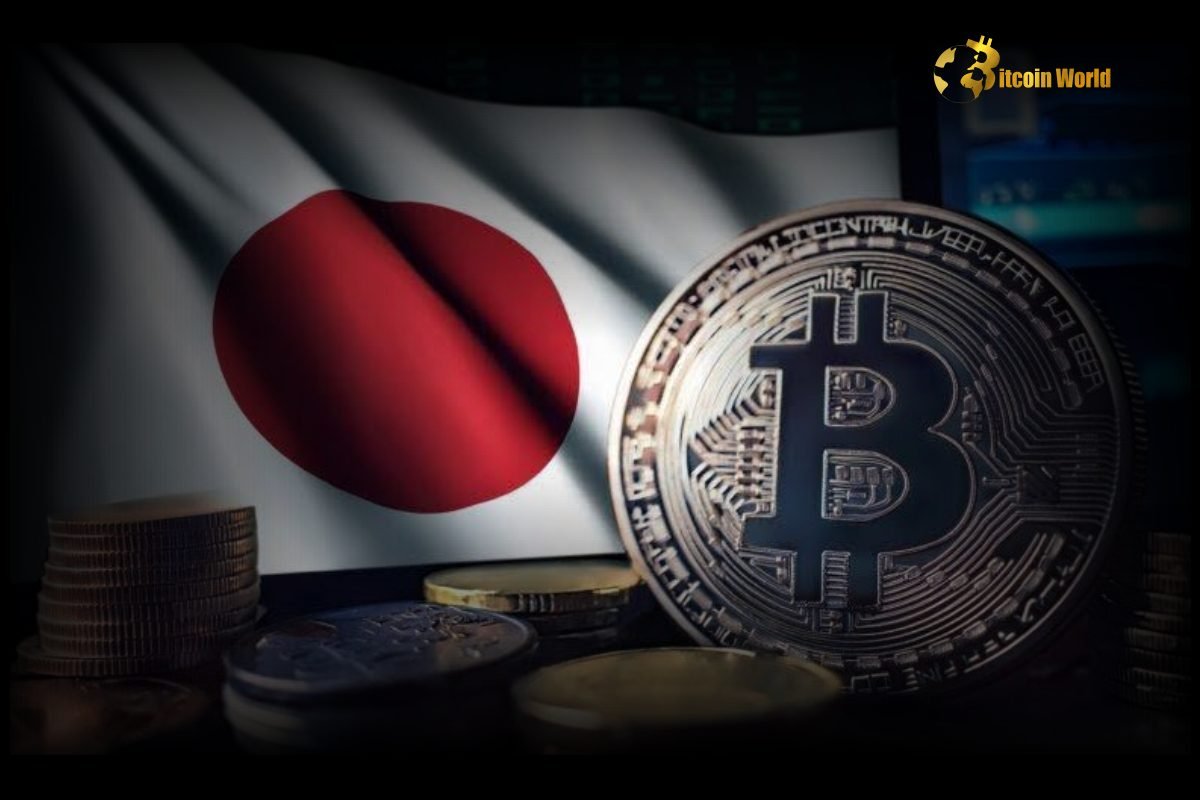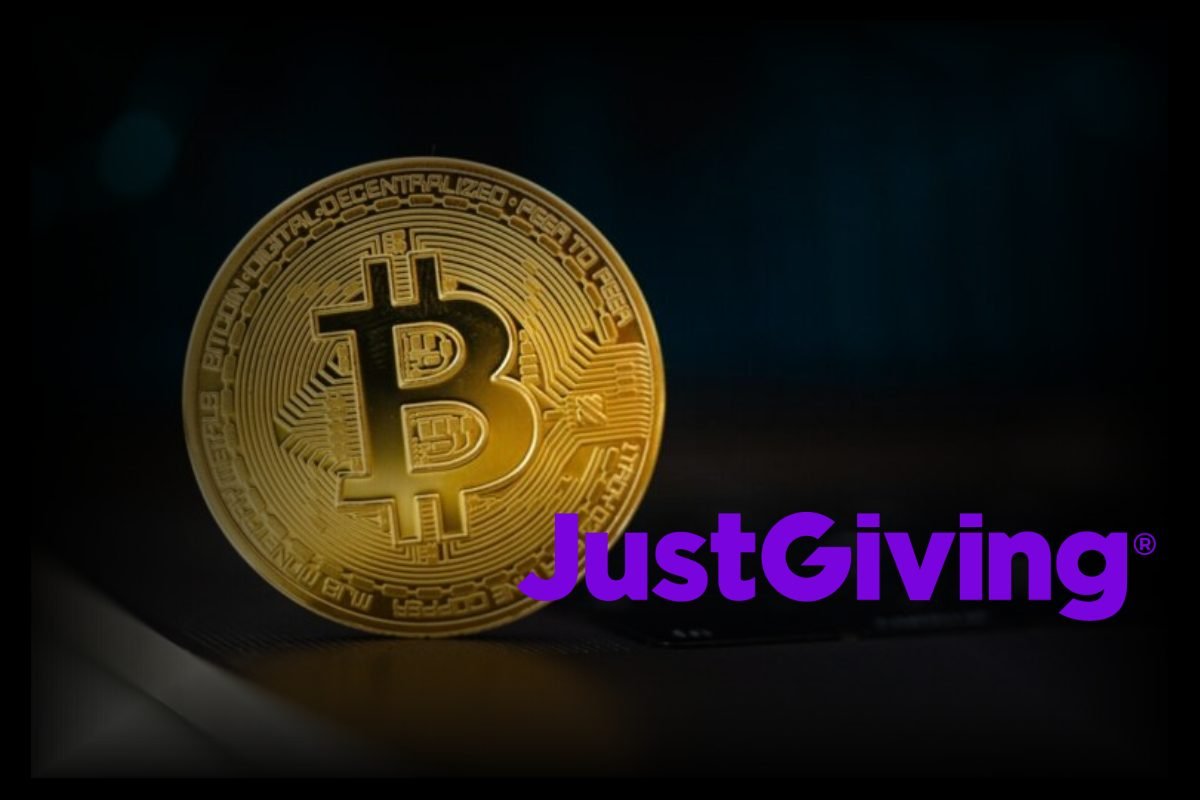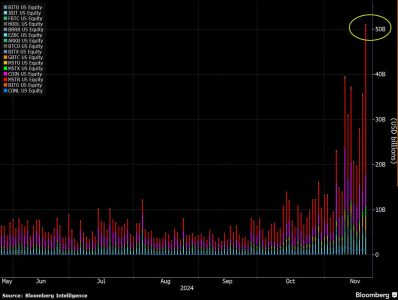Crptocurrency
Nigerian Authorities Summons Binance’s CEO

- Nigerian authorities have summoned Binance’s CEO to appear before its financial crimes committee.
- The government has issued an ultimatum to Binance’s Richard Teng.
- Despite repeated invitations, Binance has yet to appear before Nigerian authorities regarding its allegations.
Binance troubles in Nigeria have taken yet another turn.
Previously, the Nigerian authorities blocked the exchange’s website, shut down its P2P marketplace, and detained two of its executives.
Now, the government is looking to summon Binance’s CEO, Richard Teng, over allegations of terror financing and money laundering.
Nigeria Issues Ultimatum to Binance
Nigerian authorities issue an ultimatum to Binance’s CEO Richard Teng to appear before its financial crimes committee.
Local news outlet Punch reported that Nigeria’s House of Representatives Committee on Financial Crimes has issued a seven-day ultimatum to Binance’s CEO to appear before the committee on or before Monday, March 4.
See Also: Binance Denied Facing $10 Billion Fine From The Nigerian Government
The regulator’s summoning follows recent allegations of suspicious funds flowing through the exchange’s Nigerian arm in 2023.
Central Bank of Nigeria Governor Olayemi Cardoso highlighted that $26 billion had passed through Nigeria via Binance in 2023 from unidentified sources and users.
Chairman of the Committee on Financial Crimes, Ginger Onwusibe, warned that the committee will invoke its constitutional powers if Binance’s CEO, Richard Teng, refuses to appear before the court.
Despite repeated invitations, Teng has been unwilling to address the Nigerian government’s concerns regarding compliance with its business and financial laws.
Onwusibe emphasized the committee’s commitment to fighting financial crimes, citing the constitutional mandate to protect Nigerians and the country’s finances.
“The allegations of terrorism financing, money laundering, and tax evasion, amongst others, leveled against Binance are damning enough. At this material time, we need all the tax dollars to block the leaks and channels to financing terror.” he added.
Onwusibe concluded by urging Binance to fulfill its obligations, including paying taxes and establishing a physical office for citizen complaints.
Outside Nigeria, Binance also faces a $4.3 billion fine in the US for money laundering charges.
See Also: The UK Introduces New Rules To Restrict Illicit Use Of Crypto Assets
An aide to the Nigerian President suggested that the Nigerian government was eyeing fines exceeding $10 billion from Binance.
However, the adviser later retracted his statement, claiming that he was misquoted.
Binance has been under intense scrutiny over the last year from regulators worldwide.
Its regulatory woes in Nigeria could further complicate its operations and raise questions about its compliance.
Disclaimer: The information provided is not trading advice. Bitcoinworld.co.in holds no liability for any investments made based on the information provided on this page. We strongly recommend independent research and/or consultation with a qualified professional before making any investment decisions.
#Binance #WRITE2EARN
Crptocurrency
Japan Moves to Reform Cryptocurrency Taxation Policy

Japan Moves to Reform Cryptocurrency Taxation Policy
In a significant move to boost its cryptocurrency industry, the Japanese government has announced plans to reform its current cryptocurrency taxation policies. The proposed changes aim to reduce the tax burden on investors and foster innovation in the blockchain sector, solidifying Japan’s role as a global leader in cryptocurrency adoption.
The reform, part of a broader economic stimulus package, is expected to take effect in 2025, pending parliamentary approval.
Current Cryptocurrency Taxation in Japan
Currently, Japan imposes a progressive tax rate of up to 55% on cryptocurrency investment profits. This system has been criticized for being overly burdensome, especially for retail investors and small-scale traders.
Challenges with the Current Tax System:
- High Tax Burden: The 55% rate discourages participation from both domestic and international investors.
- Complexity: Calculating crypto profits under the existing system is cumbersome, deterring potential investors.
- Competitive Disadvantage: Countries like Singapore and Switzerland, with more favorable crypto tax policies, have attracted global blockchain talent and capital.
Proposed Reforms to Crypto Taxation
The proposed reform introduces a flat 20% tax rate for cryptocurrency investment profits, aligning it with taxation policies for stocks and forex trading.
Goals of the Reform:
- Ease Financial Burden: A single tax rate simplifies compliance and reduces the strain on crypto investors.
- Encourage Innovation: Lower taxes aim to attract startups and developers to build blockchain solutions in Japan.
- Boost Competitiveness: The reform positions Japan as a hub for cryptocurrency and blockchain technology.
Government and Political Support
The reform has gained bipartisan support, with both leading political parties pledging to collaborate for its approval.
Key Players Driving the Reform:
- Japanese Government: The Ministry of Finance and the Financial Services Agency are spearheading the initiative.
- Political Consensus: Lawmakers recognize the potential of blockchain technology in driving economic growth.
- Industry Backing: Leading crypto firms and industry experts have welcomed the changes, citing long-term benefits for innovation and investment.
Impact of the Reform on Japan’s Cryptocurrency Industry
1. Increased Investment
A reduced tax rate will likely attract both domestic and international investors, driving more capital into the crypto market.
2. Startup Growth
The reform creates a favorable environment for blockchain startups, enabling Japan to compete with global hubs like Singapore.
3. Enhanced Global Standing
Japan’s proactive approach could position it as a leader in cryptocurrency policy, inspiring similar reforms in other countries.
Comparative Analysis: Japan vs. Global Crypto Tax Policies
| Country | Crypto Tax Rate | Key Features |
|---|---|---|
| Japan | 55% (current), 20% (proposed) | Progressive rate to be replaced by a flat tax. |
| Singapore | 0% | No capital gains tax on cryptocurrency profits. |
| United States | Up to 37% | Taxed as property, with long- and short-term gains. |
| Switzerland | 0–11.5% | Low taxes for private investors; favorable for crypto startups. |
FAQs About Japan’s Crypto Tax Reform
1. What is the current crypto tax rate in Japan?
Currently, cryptocurrency profits are taxed at a progressive rate, with a maximum of 55%.
2. What changes are being proposed?
The new tax reform introduces a flat 20% rate for cryptocurrency investment profits.
3. When will the reform take effect?
If approved, the new tax policy will be implemented in 2025.
4. How will this reform benefit investors?
The reduced tax rate eases the financial burden on investors, encourages participation, and simplifies compliance.
5. How does Japan’s tax reform compare to other countries?
While Japan’s proposed rate is competitive, countries like Singapore and Switzerland offer even more favorable tax policies for crypto investors.
Conclusion
Japan’s move to reform its cryptocurrency taxation policy is a pivotal step in fostering a more robust and competitive blockchain ecosystem. By reducing the tax rate from 55% to 20%, the country aims to attract investors, support innovation, and solidify its status as a global leader in cryptocurrency technology.
As the reforms progress toward parliamentary approval, Japan’s approach could serve as a model for other nations seeking to balance regulation and innovation in the fast-growing cryptocurrency sector.
For more insights on global crypto regulations, explore our guide on Cryptocurrency Tax Policies Around the World.
Disclaimer: The information provided is not trading advice, Bitcoinworld.co.in holds no liability for any investments made based on the information provided on this page. We strongly recommend independent research and/or consultation with a qualified professional before making any investment decisions.
Crptocurrency
JustGiving Adds Cryptocurrency Donation Option

JustGiving Adds Cryptocurrency Donation Option
UK-based crowdfunding platform JustGiving has taken a significant step forward by enabling cryptocurrency donations. This move allows donors to contribute using over 60 digital assets, including Bitcoin (BTC), Ethereum (ETH), Tether (USDT), and Dogecoin (DOGE). With nearly $9 billion raised to date, JustGiving joins the growing trend of integrating cryptocurrency into the world of philanthropy.
Why JustGiving Introduced Cryptocurrency Donations
Cryptocurrency is becoming an increasingly popular method of giving. According to recent reports, crypto donations are, on average, 40 times larger than traditional fiat contributions, making them a valuable tool for fundraising platforms like JustGiving.
Key Benefits of Crypto Donations:
- Global Reach: Cryptocurrencies enable donors worldwide to contribute without the barriers of exchange rates or high transfer fees.
- Transparency: Blockchain technology ensures that transactions are secure and traceable.
- Larger Contributions: Studies show that crypto donations are significantly higher in value than fiat donations.
How the JustGiving Cryptocurrency Donation System Works
Supported Cryptocurrencies
Donors can use over 60 digital assets, including:
- Bitcoin (BTC)
- Ethereum (ETH)
- Tether (USDT)
- Dogecoin (DOGE)
Steps to Donate Crypto on JustGiving:
- Visit the JustGiving Cryptocurrency Donations page.
- Select the digital asset you wish to use for your donation.
- Scan the provided QR code or copy the wallet address to complete the transaction.
Conversion Process
JustGiving automatically converts donated cryptocurrency into fiat currency for charities, ensuring seamless integration for organizations that may not yet operate in the crypto space.
The Growing Trend of Crypto Donations
Cryptocurrency donations have seen exponential growth, with over $2 billion raised for charities globally in the past five years.
Notable Statistics:
- Crypto donors contribute 40x more on average compared to fiat donors.
- Blockchain technology offers transparency, reducing concerns about misuse of funds.
- Major platforms like Binance Charity and The Giving Block have pioneered crypto philanthropy, inspiring others like JustGiving to follow suit.
Benefits for Charities Using Crypto Donations
1. Attracting Younger Donors
Cryptocurrencies appeal to tech-savvy millennials and Gen Z, broadening the donor base.
2. Access to Global Markets
Organizations can now accept donations from supporters worldwide without incurring high fees or currency conversion issues.
3. Enhanced Security
Blockchain-based transactions are highly secure, minimizing risks of fraud or theft.
Challenges of Cryptocurrency Donations
While crypto donations offer numerous advantages, there are challenges to address:
- Volatility: Cryptocurrencies are prone to price fluctuations, which could impact the value of donations.
- Adoption Barriers: Not all charities are equipped to handle crypto donations directly.
- Regulatory Concerns: The tax implications of crypto donations vary by country and require clear guidelines.
FAQs About Cryptocurrency Donations on JustGiving
1. Why did JustGiving add cryptocurrency donations?
To cater to a growing donor base interested in using digital assets, enhance transparency, and attract larger contributions.
2. What cryptocurrencies can I use to donate on JustGiving?
Over 60 digital assets, including Bitcoin, Ethereum, Tether, and Dogecoin, are supported.
3. How does JustGiving handle cryptocurrency donations?
Donations are converted into fiat currency automatically, ensuring charities can use the funds without managing crypto wallets.
4. Are cryptocurrency donations tax-deductible?
Tax regulations vary by country. In many cases, cryptocurrency donations are eligible for tax deductions similar to fiat donations.
5. What are the advantages of donating cryptocurrency?
Cryptocurrency donations offer global accessibility, larger contributions, and enhanced transparency through blockchain technology.
Conclusion
JustGiving’s introduction of cryptocurrency donations marks a milestone in modern philanthropy. By embracing digital assets, the platform not only broadens its reach but also taps into a more generous donor base. As cryptocurrency continues to reshape industries, its integration into charitable giving is poised to make a lasting impact.
To learn more about the innovative startups shaping the future of the crypto industry, explore our article on latest news, where we delve into the most promising ventures and their potential to disrupt traditional industries.
Disclaimer: The information provided is not trading advice, Bitcoinworld.co.in holds no liability for any investments made based on the information provided on this page. We strongly recommend independent research and/or consultation with a qualified professional before making any investment decisions.
Crptocurrency
Bitcoin-Related Trading Volume Hits $50 Billion in a Single Day

Bitcoin-Related Trading Volume Hits $50 Billion in a Single Day
The Bitcoin (BTC) market continues to dominate global financial activity as total trading volume linked to Bitcoin reached a staggering $50 billion today, according to Eric Balchunas, a senior ETF analyst at Bloomberg. This remarkable figure is comparable to the average daily volume (ADV) of the entire UK stock market, underlining Bitcoin’s growing influence in financial markets.

Breaking Down the $50 Billion Volume
MicroStrategy Leads the Charge
A significant portion of this trading volume—$32 billion—was attributed to the trading of MicroStrategy (MSTR) stock. MicroStrategy, a business intelligence company known for its massive Bitcoin holdings, has increasingly become a proxy for Bitcoin exposure in the equity market.
ETF Trading Activity
- Balchunas noted that $6 billion of the total volume was linked to the trading of MSTU and MSTX, two MicroStrategy-related ETFs.
- Interestingly, this volume exceeded all spot Bitcoin ETFs, showcasing the popularity of MicroStrategy-related investment vehicles.
Spot Bitcoin ETFs
While the trading of spot Bitcoin ETFs contributed significantly to the overall volume, their activity was eclipsed by the immense interest in MicroStrategy stocks.
Bitcoin’s Growing Influence in Financial Markets
Bitcoin’s daily trading volume now rivals major traditional markets, demonstrating its growing importance in the global financial ecosystem.
1. Rivaling Traditional Markets
With today’s $50 billion in trading volume, Bitcoin has matched the ADV of the UK stock market, underscoring its role as a mainstream financial asset.
2. Institutional Adoption
- The surge in trading activity is largely driven by increasing institutional adoption of Bitcoin-related investment products.
- The success of spot Bitcoin ETFs and Bitcoin-linked equities like MicroStrategy stock reflects this trend.
3. Market Liquidity
Bitcoin’s deepening liquidity allows for large trading volumes without significant price impact, making it attractive to institutional and retail investors alike.
The Role of MicroStrategy in Bitcoin Trading
MicroStrategy’s aggressive Bitcoin acquisition strategy has made it a central player in the Bitcoin ecosystem.
Bitcoin Holdings
- As of November 2024, MicroStrategy holds over 331,200 BTC, worth billions of dollars.
- This makes the company a preferred choice for investors seeking indirect exposure to Bitcoin.
Stock Performance
MicroStrategy stock has become highly correlated with Bitcoin’s price movements, driving trading volumes as BTC continues to rally.
What’s Driving the Surge in Bitcoin Trading Volume?
1. Bull Market Momentum
Bitcoin’s ongoing rally, driven by a weakening U.S. dollar and renewed investor optimism, has fueled trading activity across markets.
2. Popularity of Bitcoin ETFs
- Spot Bitcoin ETFs have introduced a new wave of institutional and retail investors to the crypto market.
- The launch of options on Bitcoin ETFs has further amplified trading volumes.
3. Increasing Crypto Adoption
The broader adoption of Bitcoin as a store of value and hedge against inflation continues to attract attention from investors worldwide.
FAQs About Bitcoin Trading Volume
1. How does Bitcoin’s trading volume compare to traditional markets?
Today’s $50 billion in Bitcoin-related trading volume matches the average daily volume of the entire UK stock market, highlighting its growing financial influence.
2. What role does MicroStrategy play in Bitcoin trading?
MicroStrategy’s significant Bitcoin holdings make its stock a popular investment vehicle for those seeking indirect exposure to Bitcoin.
3. Why are Bitcoin ETFs important?
Bitcoin ETFs provide a regulated and accessible way for investors to gain exposure to Bitcoin without holding the asset directly, driving trading activity.
4. How is institutional adoption impacting Bitcoin trading?
Institutional interest in Bitcoin-related assets, such as ETFs and equities like MicroStrategy, has significantly increased trading volumes.
5. What’s next for Bitcoin trading activity?
With rising adoption and continued market optimism, Bitcoin’s trading volumes are expected to grow further, potentially surpassing more traditional markets.
Conclusion
Bitcoin’s ability to generate $50 billion in trading volume in a single day underscores its maturity as a financial asset and its growing relevance in global markets. With a substantial portion of this activity linked to MicroStrategy stocks and ETFs, Bitcoin’s integration into traditional finance continues to accelerate.
As the market evolves, the synergy between Bitcoin and related investment products will play a crucial role in shaping the future of crypto-finance.
For more insights into Bitcoin’s market dynamics, explore our guide on How Institutional Investors Are Transforming the Crypto Landscape.
Disclaimer: The information provided is not trading advice, Bitcoinworld.co.in holds no liability for any investments made based on the information provided on this page. We strongly recommend independent research and/or consultation with a qualified professional before making any investment decisions.
-

 Startup Stories1 year ago
Startup Stories1 year agoWhy Millennials, GenZs Are Riding The Investment Tech Wave In India
-

 Startup Stories1 year ago
Startup Stories1 year agoStartups That Caught Our Eyes In September 2023
-

 Startup Stories1 year ago
Startup Stories1 year agoHow Raaho Is Using Tech To Transform India’s Fragmented Commercial Trucking
-

 Startup Stories1 year ago
Startup Stories1 year agoMeet The 10 Indian Startup Gems In The Indian Jewellery Industry’s Crown
-

 Crptocurrency9 months ago
Crptocurrency9 months agoLither is Making Crypto Safe, Fun, and Profitable for Everyone!
-

 Startup Stories1 year ago
Startup Stories1 year agoHow Volt Money Is Unlocking The Value Of Mutual Funds With Secured Lending
-

 E-commerce1 year ago
E-commerce1 year agoTop Online Couponing Trends To Watch Out For In 2016
-

 Startup Stories1 year ago
Startup Stories1 year agoWhy Moscow-Based Kladana Considers Indian SME Sector As The Next Big Market For Cloud Computing




